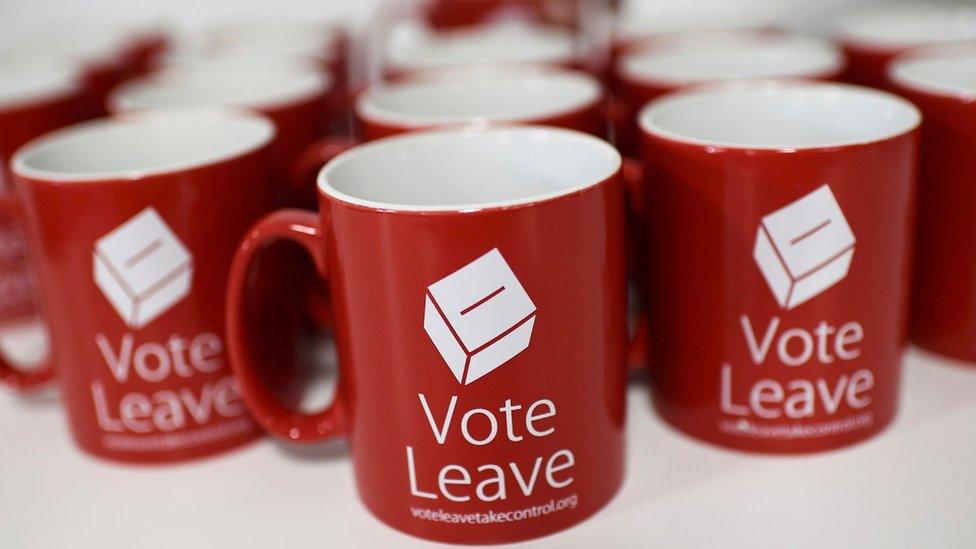Brexit: Police hand Vote Leave file to Crown Prosecution Service
- Published

Police investigating the Vote Leave campaign after an Electoral Commission probe said it broke electoral law have passed a file to the Crown Prosecution Service.
Scotland Yard said it had sought advice on its investigation into the official Brexit campaign, which followed an Electoral Commission probe last year.
The commission found Vote Leave exceeded a Ā£7 million spending limit.
Vote Leave previously said the findings were "wholly inaccurate".
The Vote Leave campaign, which was fronted by Boris Johnson and Michael Gove, won the contest to be the official Leave campaign in the 2016 referendum on whether Britain should stay in the European Union.
Vote Leave and the official Remain campaign Britain Stronger in Europe were allowed to spend Ā£7m each on campaigning in the run up to the referendum.
The commission's report, in July 2018, said Vote Leave spent almost Ā£500,000 more than it should have done during the campaign.
Vote Leave was fined Ā£61,000 for the breach by the Electoral Commission, which referred the matter to police.
'Investigative advice'
The Metropolitan Police said a file was sent to the Crown Prosecution Service (CPS) last month regarding Vote Leave and pro-Brexit youth group BeLeave.
The Electoral Commission said Vote Leave funnelled Ā£675,315 through the BeLeave group, which the watchdog ruled should have been declared.
A Met spokesman said: "On Thursday, October 17, the MPS [Metropolitan Police Service] submitted a file to the CPS for early investigative advice in relation to the second investigation, which followed a referral from the Electoral Commission on July 17, 2018 and concerns Vote Leave and BeLeave."
CPS guidelines state prosecutors "may provide guidance and advice in serious, sensitive or complex cases".
They add that early investigative advice could "save both police and CPS resources and time later on".
It does not mean the CPS is considering criminal charges or that they will be brought in future.
Former Vote Leave chief Matthew Elliott defended his group's actions
Speaking after the publication of the Electoral Commission's report last year, a Vote Leave spokesperson said it contained "a number of false accusations and incorrect assertions that are wholly inaccurate and do not stand up to scrutiny".
They said the Electoral Commission was "motivated by a political agenda rather than uncovering the facts".
They added: "The commission has failed to follow due process, and in doing so has based its conclusions on unfounded claims and conspiracy theories."
The Electoral Commission said it pursues investigations "where the evidence justifies it, irrespective of the political views of the party or campaigner concerned".
Update 3 Nov 2019: The story has been amended to more accurately reflect the findings of the Electoral Commission.
- Published17 July 2018